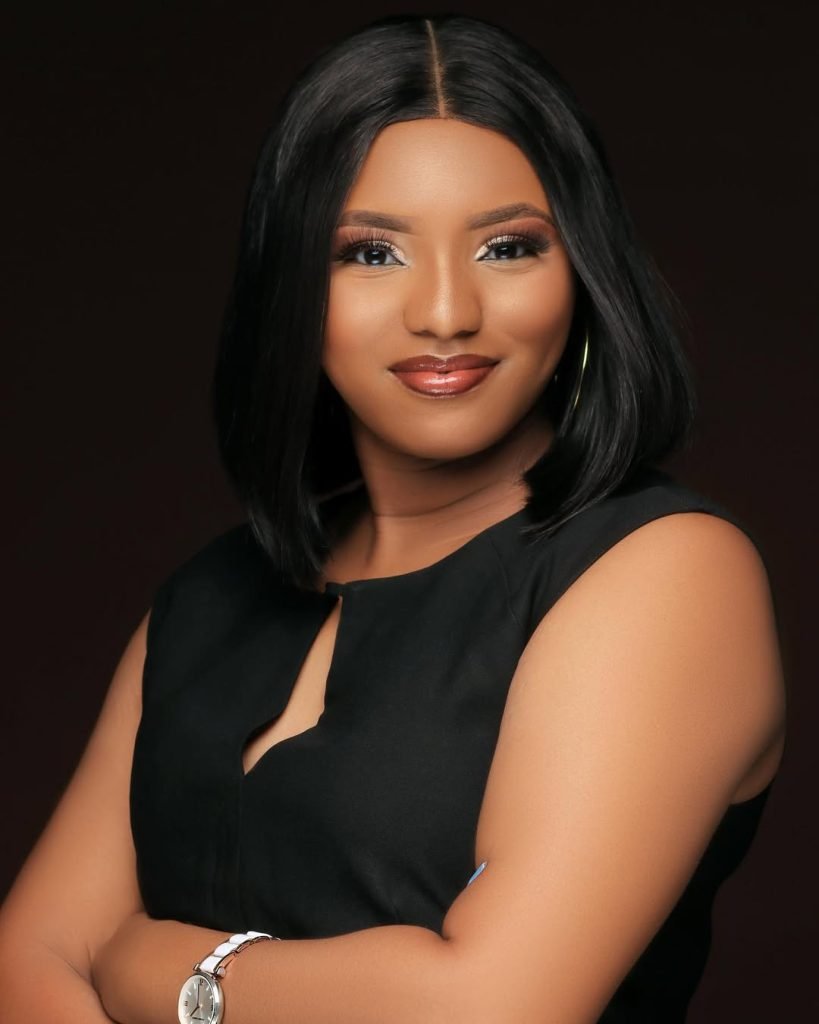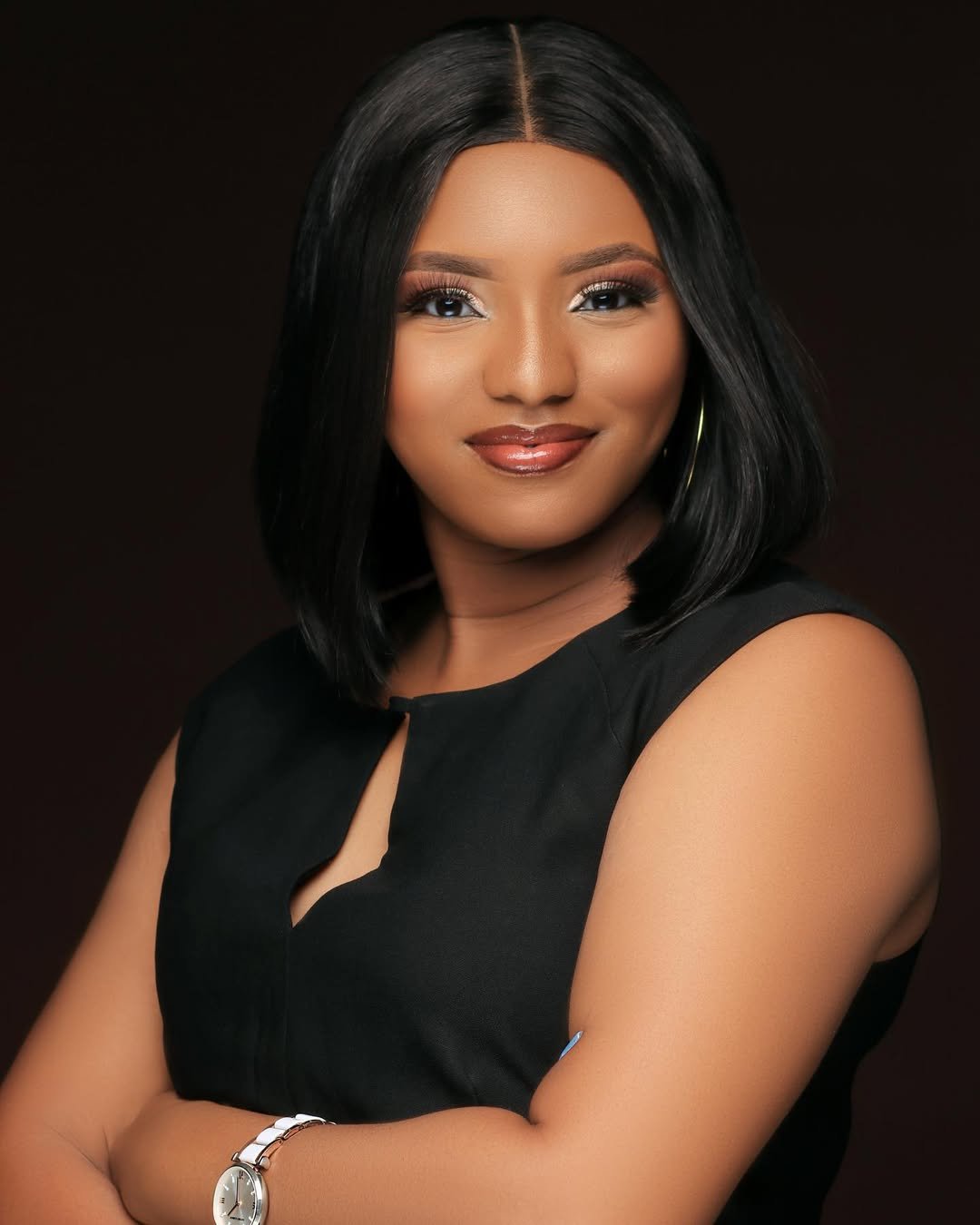

By Andrea Andy | The Book Series – A&R Duty
In an industry often measured by algorithms, numbers, and name-drops, few carry the balance of heart, insight, experience, and fire like Chioma Okoro — the powerhouse known as OHRMA. With a name as unique as her approach, OHRMA is not just navigating the music industry; she’s shaping its future.
The Book sat down with her to uncover the intimate, raw, and vibrant journey that brought her here — from her childhood curiosity and sharp instincts to building her own company, working with top talents, shaping narratives, and making space for the next generation of music leaders.
Before the credits, the consultations, and the commanding rooms, there was “Chioma.” When asked about the name “Ohrma,” she chuckled. “It’s very random,” she said, explaining how she needed a unique IG name. With many versions of “Oma” already taken, she came up with her own twist: “Let me just spell it like this — and it stuck.”
But beyond just sticking, it stood for more — a name that now carries vision, legacy, and an evolving movement of purposeful artistry and leadership.
OHRMA studied Theatre Arts at the University of Port Harcourt, majoring in acting. But soon, a new realization hit: she was better at guiding others than performing herself. She was advising her peers about their careers, spotting potential, and instinctively offering strategy.
“I didn’t know what it was at the time,” she said. “But I was just… good at giving career advice.”
From there, life connected the dots. Her sister introduced her to someone in the music business, and soon she was following Godwin Tom on social media. “I didn’t even know who he was then. But when I found out he was recruiting interns, I shot my shot.”
She was selected. That marked the beginning — 2018 — of a now seven-year journey.
When asked what being an A&R meant to her, she answered passionately: “It’s something I enjoy. It’s not a chore. It’s not about making money. I love it.”
She has what she calls an “ear gift” — an innate ability to detect when something is off in a song. “Even in my sleep, I can rearrange your song,” she said with a laugh. “I unconsciously just do it. I’m even considering going back to the choir.”
One of her lightbulb moments came while casually remixing a song — a version that later featured Amaarae. “Even now, as I talk about it, I’m like… wait, that happened!” That moment confirmed she wasn’t just in the game — she was changing it.
OHRMA’s creative process is strategic and instinctive. She enjoys decongesting her mind with movies, but in the studio, she’s laser-focused. “I listen, I observe, then I help guide them. I suggest what we can create.”
Despite the chaos, she listens deeply. “Creatives are opinionated — divas, even. But it’s all about approach. I let them talk, then I pitch my thoughts. And it works.”
OHRMA is a woman of integrity in an industry that sometimes lacks it. She talked about her deep gratitude to GT (Godwin Tom), one of the execs who has been “through and through” with her journey. “If he says it’s blue, it’s blue. A good name is better than riches.”
This perspective informs her own mentorship model. “I’m not just doing this for me. I’m doing it for the ones I will mentor… and the ones they’ll mentor. That’s how an ecosystem is built.”
In an industry saturated with “fine boys” and flashy mediocrity, she urges artists and execs to “do due diligence. Don’t block the road for others because of selfishness.”
The Nigerian music industry has seen wild global growth—but it’s not without its cracks. Ohrma highlights lack of structure, poor due diligence, and clout-chasing execs as major barriers. She’s met artists who burned 10 million naira on fake promises, only to arrive with 500K and a broken heart.
“When you give someone a role, make sure they know what they’re doing. If not, they’ll block the road for the next person.”
She points out that some artists now carry global recognition, like Rema, who is “intentional” and “wise beyond his years.” But she also warns artists at the top to speak kindly of Afrobeats on global stages. “Protect your own first,” she urges.
As a woman, she’s had to work twice as hard to be heard. “It’s an industry saturated by men,” she said. “Two people can do the same work, but the man’s opinion is preferred. What makes the difference? Deliverables.”
For Ohrma, being a woman in music is a double effort. “You’re expected to be excellent before you’re even heard,” she says. She admits women can be “dramatic,” but also deeply powerful. “When you see artists represented by women, you see growth.”
She emphasizes collaboration among women as the next phase of evolution. “Connect. Say hi. Don’t let your phone be your only ally in the room.”
Her hope? To see more women connect, work, support, and build together.
From playlist curation to digital distribution, artist development to talent scouting, Ohrma’s resume is a buffet of industry roles—each one deeply explored. “I didn’t want to wear all the hats, but I had to understand them,” she explains.
After experiencing an artist betrayal that nearly set her back, she dove into learning everything—marketing, rollouts, PR, streaming strategies. “So no one can whine me for my clients,” she says, not with pride, but precision.
Despite not always “blowing her trumpet,” OHRMA has been behind many major projects — some public, many lowkey. From facilitating talent development through MBA for Africa, to sound design, artist development, and session direction — her fingerprint is evident in the elevation of numerous talents.
She’s also helping to shape educational infrastructure. Through Music Business for Africa, she not only scouts artists, but also guides students through real-world simulations of what being an exec means.
When asked about noise in the industry, she said, “A lot of people are performing signs and wonders, but they’re just collecting money.” It was both hilarious and piercing. The real issue, she explained, is intent and integrity. “What matters is success rate. Every other thing is noise.”
She’s walked away from opportunities that didn’t sit right — including moments where budgets were mismanaged and trust was broken. “There’s no economic value for grudge,” she said firmly. “Keep it moving.”
OHRMA’s success isn’t measured by clout — it’s about targets. “Money is the reward, not the angle,” she said. “I want to hit my goals, transition into a different industry, and bridge the gap between music and wherever I go next.”
She’s currently grooming younger women through her company, taking on interns, and ensuring that what she’s building doesn’t end with her.
Her scouting process has matured. “Now I focus on quality control. Vision alignment is everything.” For her, success isn’t just about being hot — it’s about being right.
One of her superpowers is spotting talent before the noise. She once got approached to fix a project days before flying out — she made a few corrections, and that led to a remix that featured Amaarae, who was peaking at the time. “I didn’t even realize what I had done until later.”
Looking back at her seven-year journey, she chose one word to describe it: Intriguing. Not exciting. Not chaotic. But a tapestry of challenges, milestones, and unexpected wins.
“There were moments I didn’t understand at the time, but they shaped how I think today,” she said. “I didn’t even celebrate some wins because I was always on the move. But now I look back and I’m like, yeah… I did that.”
If there’s one resounding philosophy Ohrma embodies, it’s this: “There is no economical value for grudge.” It’s a mantra she repeats multiple times in our conversation—softly but firmly, like someone who’s seen too much to waste time on pettiness. She shares stories of being misinterpreted, misrepresented, even subtly sabotaged—yet every example ends with the same resolve: forgive, evolve, keep the door open.
This principle isn’t born from naivety—it’s from strategy. “Right here, right now, me and you can fight, and tomorrow we’ll still work together,” she says. And if that’s not a masterclass in industry emotional intelligence, what is?
When asked what success meant, OHRMA didn’t flinch: “Success is being able to transition and still remain relevant. It’s about building people and positioning myself to tap into the next generation.”
Whether she’s directing strategy, grooming talent, setting up projects, or mentoring women, Chioma “OHRMA” Okorois not just making moves — she’s building maps.
Maps for others to follow, expand, and innovate from.
The Book is proud to have her story documented — raw, rich, and radically honest. And as we always say, this is how you carve your name into the annals of music history.
Interview Conducted and Written by Andrea Andy
A&R Duty